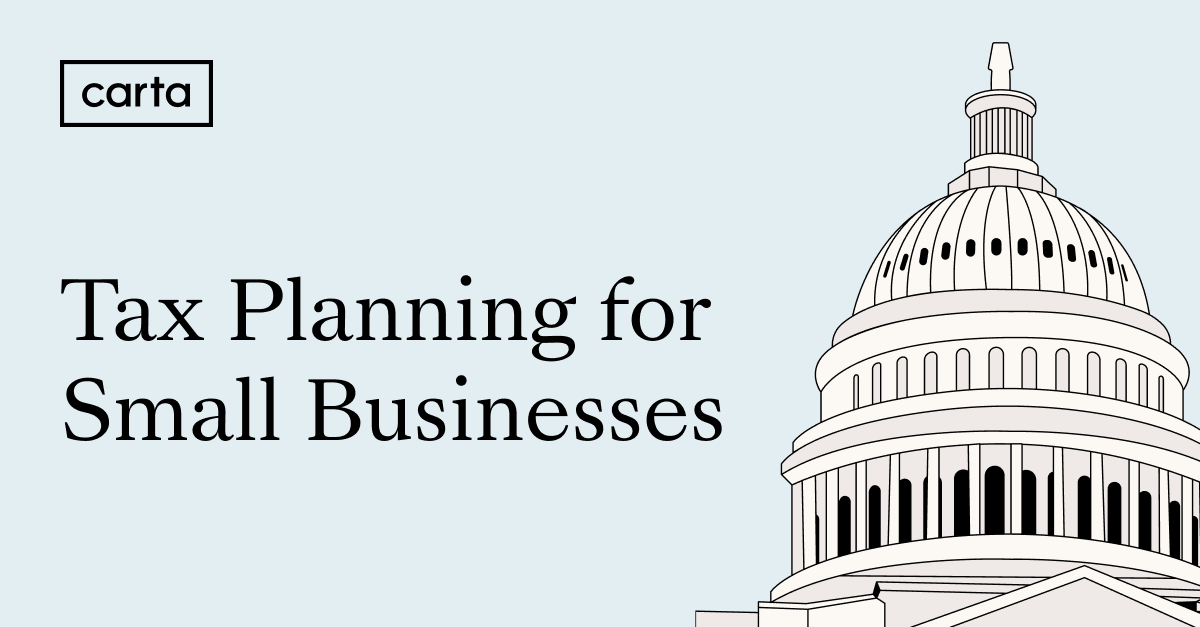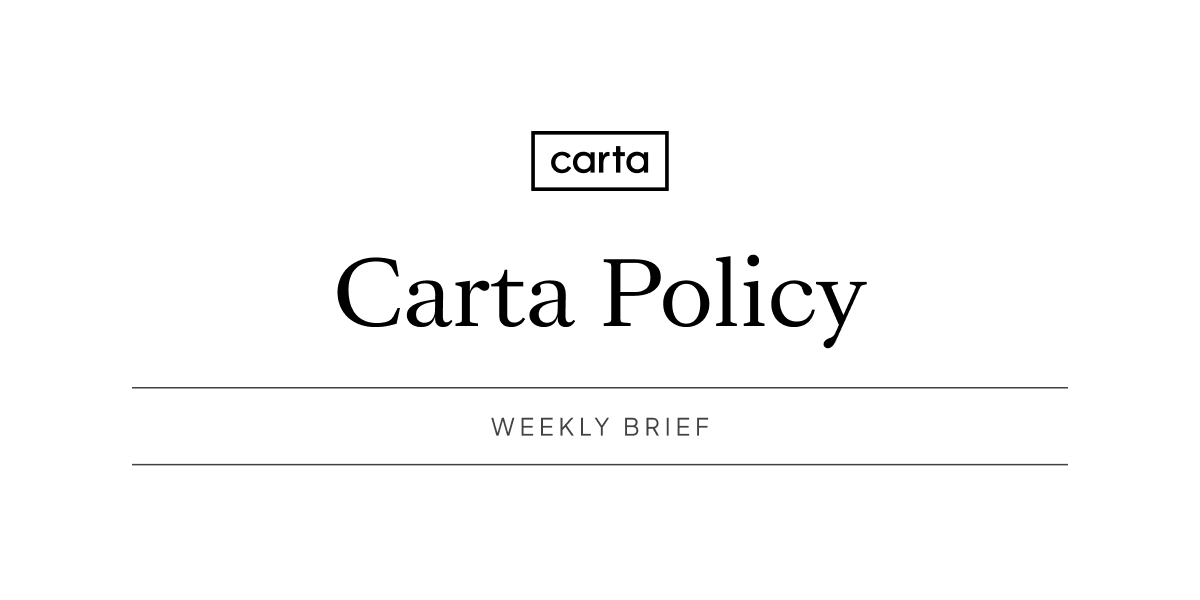Topline
-
House still searching for speaker solution with pressure mounting from White House
-
Private funds remain focus for SEC exams
-
SEC not appealing Grayscale decision
-
IRS officially makes e-signatures for 83(b) elections permanent
-
CFPB proposes rule to accelerate shift to open banking
House still searching for speaker solution with pressure mounting from White House
After three failed votes on the House floor, Judiciary Committee Chairman Jim Jordan’s bid for the speakership has stalled. And while Republicans seem to be getting further and further from reaching consensus for on Speaker candidate, lawmakers are under mounting pressure to get back to regular order: there are now less than 30 days until temporary government funding expires, and the White House has requested a $106 billion funding package that includes aid for Israel and Ukraine—neither of which can be addressed in the House without a Speaker in place.
What happens next: It’s anyone’s guess at this point. There are three potential options: Republican alignment around a candidate, expanding the powers of Speaker Pro Tem Patrick McHenry, or the creation of a coalition government with bipartisan support. While it is unclear which of these three options will eventually lead to continued governance in the House, there still seems to be momentum to try to find consensus among Republicans on a candidate (it took former Speaker McCarthy 15 votes to secure the Speakership back in January). However, with the mounting pressure given the geopolitical situation and the timeline of government funding, time is not on the side of Republicans as they aim to reach consensus.
Private funds remain focus for SEC exams
The SEC’s Division of Examinations released its 2024 exam priorities. Private equity and venture capital funds will continue to be a priority. Specific areas of focus include:
-
Private fund fees and expenses, including disclosures, valuations, and offsets
-
Due diligence practices, particularly with respect to assessing prospective portfolio companies
-
Compliance with custody, audit, and Form ADV and Form PF reporting requirements
-
Portfolio management risks in light of recent market volatility and high interest rates
Why it matters: The SEC has increased its scrutiny of the private funds industry through both rulemaking and enforcement efforts. The SEC can examine all private fund advisers—including venture capital advisers who are exempt reporting advisers—for cause or as part of the SEC’s routine examination program. Historically, SEC staff has not conducted exams on ERAs on a regular basis, but the agency’s posture is shifting and VC fund managers can expect more scrutiny, particularly as new requirements like PFA rules are implemented.
SEC dismisses charged against Ripple execs
This week, the SEC dropped the remaining claims in its enforcement action against Ripple executives for securities law violations. This rare dismissal will allow the SEC to appeal a previous summary judgment ruling that XRP tokens purchased on the secondary market were not securities under the Howey test.
-
The federal judge previously denied the SEC’s request for an interlocutory appeal on this matter, meaning the Commission would have had to wait to appeal after the conclusion of the trial that was scheduled for next spring.
-
Dropping the charges against the Ripple execs will allow the SEC to appeal immediately.
Why it matters: The SEC is seeking to resolve conflicting legal conclusions from the SDNY; an appeal would provide the Second Circuit—the preeminent court for securities and financial regulation—an opportunity to provide clarity as to whether tokens purchased on digital asset platforms would be considered securities. Congress is not likely to come to consensus on a comprehensive crypto framework, and the SEC is not expected to change its posture and provide clarity through rulemaking or guidance, which means court decisions are likely to shape the crypto regulatory regime, at least in the medium term. Such determinations will have broad implications for many of the SEC’s pending enforcement actions against crypto platforms, including Coinbase.
In other crypto news, the SEC did not appeal a recent court decision that required the agency to reconsider Grayscale’s application for a bitcoin ETF. The decision not to appeal signals the Commission is on track to approve a bitcoin ETF product, the question just remains when and which application will be approved first.
IRS officially makes e-signatures for 83(b) elections permanent
In a huge win for the innovation ecosystem, the IRS officially made e-signatures for 83(b) elections permanent thanks to the tireless efforts of Carta’s Policy team and our coalition partners.
-
An 83(b) election lets taxpayers accelerate a portion of their tax liability on equity ownership to the date of acquiring the shares—which can result in significant tax savings.
-
During the Covid-19 pandemic, the IRS temporarily offered some digital flexibilities to allow taxpayers the ability to electronically sign certain documents. Carta believed that filing an 83(b) election should be easier, so we partnered with a coalition of leading technology law firms, accelerators, venture capital investors, and industry associations and successfully advocated for it to be included on the IRS temporary e-signature relief list.
-
As the Oct 31, 2023 expiration date for temporary e-signature relief approached, Carta and coalition partners continued to tirelessly urge the IRS to make its e-signature capability permanent.
This week, the IRS responded to our coalition’s steadfast determination and advocacy by officially formalizing 83(b) e-signature allowance in its Internal Revenue Manual (IRM).
Why it matters: Carta sought to streamline the process that would allow employees to sign and file 83(b) elections electronically. We’ve succeeded. If you need to file an 83(b) election we have automated submission for our users.
Tax planning for small businesses

Congress regularly passes new small business tax incentives to promote specific business behaviors and accomplish long-term goals, like shoring up Americans’ retirement savings. Over the past several decades, those incentives have focused on supporting the development of startups, which have the potential to create more jobs, build entirely new industries, and boost our economy.
While you might think of paying taxes as just another cost of doing business, seasoned entrepreneurs understand that annual tax planning is a strategy that can position a business for growth. Learn more about some incentives that can be helpful to small businesses here.
CFPB proposes rule to accelerate shift to open banking
This week, the Consumer Financial Protection Bureau announced a proposed rule that would grant consumers more control over their financial data.
-
The proposed rule would require financial companies to allow customers to send their banking transaction data to other companies and banks.
-
The rule would make it easier for people to break up with their bank, switch to banks with better offerings, and to manage accounts from multiple providers.
Comments on the proposal are due December 29 and the Bureau has previously signaled its intention to finalize the rule in 2024.
Why it matters: This reform will create more competition among banking providers and ensure they compete based on service quality and up-front pricing. This also marks a larger shift toward open and decentralized banking, and is in line with the current administration’s war on junk fees.
News to know
-
SEC adopts rule to increase short-selling transparency. The rules will require investors to report their short positions to the agency, and companies that lend out shares to report that activity to the Financial Industry Regulatory Authority FINRA.
-
CA Governor signs Digital Financial Assets bill into law. The law requires California's Department of Financial Protection (DFPI) and Innovation to create a regulatory framework for crypto. California follows other states who have started creating their own crypto regulatory regime absent a federal framework.
-
Senate votes to overturn CFPB small business rule as Biden threatens veto. The Senate on Wednesday voted to overturn a Consumer Financial Protection Bureau rule requiring lenders to report demographic data on small-business loan recipients, defying a White House veto threat.
-
Sen. Warren pens bipartisan letter asking for Treasury to crack down on crypto amidst conflict in the Middle East. In the letter, Warren cites reporting that found digital wallets linked to Hamas have received up to $134 million since 2021. While the letter notes that Congress is in the process of considering legislative proposals designed to mitigate crypto money laundering and illicit finance risks, Warren and allies ask the Biden administration and Treasury to act to meaningfully curtail illicit crypto activity.
-
SEC Chair Gensler warns about the dangers of AI in continued pattern of skepticism surrounding innovation Gensler. In an interview this week, SEC Chair Gary Gensler noted that it was “nearly unavoidable” that AI would trigger a financial crisis within a decade. Gensler’s comments indicate that the SEC will likely continue to contribute to the AI regulatory regime, following a proposed predictive data analytics rule announced by the SEC in July.
Upcoming events
-
SEC Chair Gensler will speak at the Securities Enforcement Forum 2023 - October 25 at 5am PT / 8am ET
-
Federal Reserve Board: Consideration of Final Rule Revising the Community Reinvestment Act - October 24
-
House Financial Services Committee: Examining the SEC’s Agenda: Unintended Consequences for U.S. Capital Markets and Investors - October 24 at 7am PT / 10am ET
-
House Financial Services Committee: The Tangled Web of Global Governance: How the Biden Administration is Ceding Authority Over American Financial Regulation - October 24 at 7am PT / 10am ET
-
House Oversight and Accountability Committee: Oversight of the Internal Revenue Service - October 24 at 11am PT / 2pm ET
-
House Financial Services Committee: Modernizing Financial Services Through Innovation and Competition - October 25 at 7am PT / 10am ET
-
House Financial Services Committee: How America and Its Allies Can Stop Hamas, Hezbollah, and Iran from Evading Sanctions and Financing Terror - October 25 at 11am PT / 2pm ET
-
Washington Post: The Futurist Summit: The Rise of AI - October 26 at 6am PT / 9am ET

